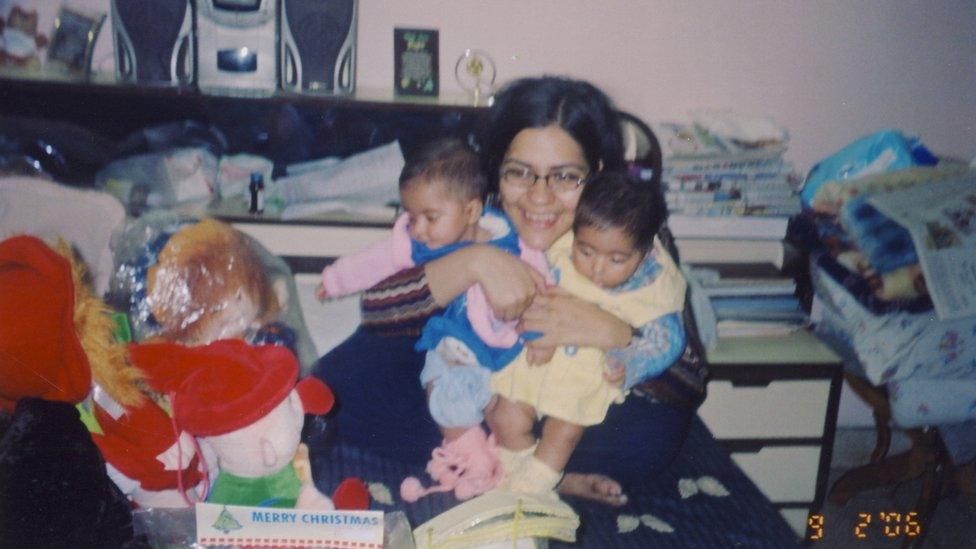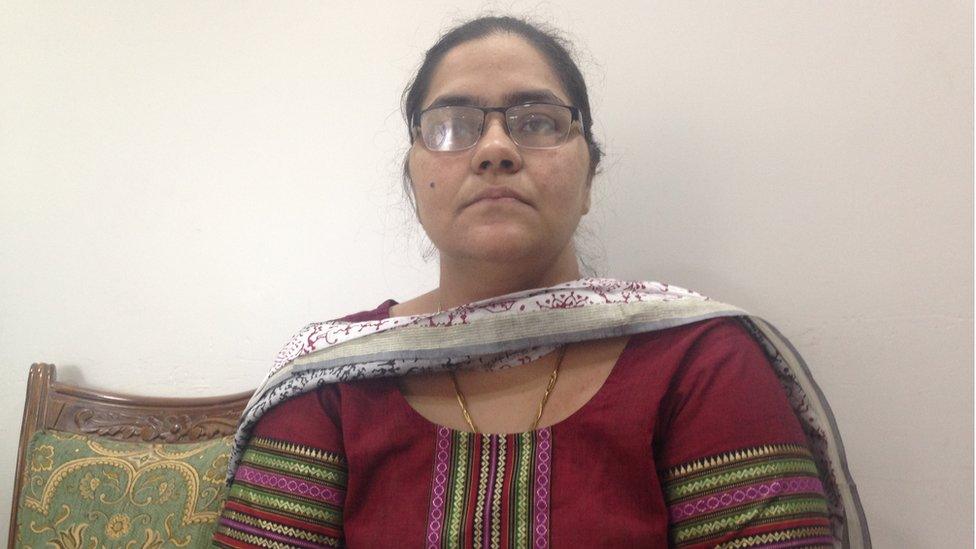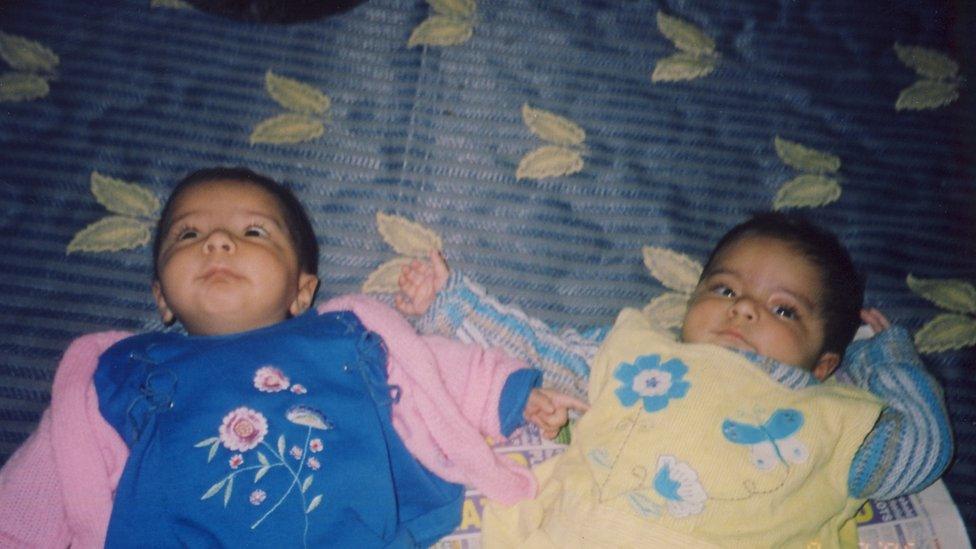India activist to fight sex determination ruling
- Published

Dr Mitu Khurana alleges her husband and in-laws tried to make her abort her twin daughters in 2005
The first Indian woman to initiate proceedings against her ex-husband and his relatives under a law that bans foetal gender determination, has vowed to challenge a court order that absolved the accused of charges that they illegally tested the gender of her foetuses and subsequently pressured her to terminate her pregnancy. BBC Hindi's Vineet Khare finds out more.
Dr Mitu Khurana says she is still to recover from the "shock" of losing a seven-year court battle against her ex-husband and his family.
In 2008, Dr Khurana filed a case against her husband Dr Kamal Khurana, his mother and another member of his family, for allegedly colluding with a hospital official to determine the gender of her foetuses while she was pregnant in 2005, and then pressurising her to undergo an abortion once it was discovered she was carrying girls.
She told the court that she had refused to undergo the abortion, but had been beaten and denied food as a result, after which she slipped into "severe depression."
Her husband Dr Kamal Khurana has denied the charges and told the BBC that "justice has been served by the court".
"This case has cost me heavily. I lost my father. My career is in trouble. I cannot meet my children. I lost my family. I don't know what she wants," he said.

The Khurana case
Dr Mitu Khurana married Dr Kamal Khurana in November 2004.
She alleged that once she was pregnant in 2005, she resisted pressure from her husband and in-laws to undergo tests to determine the gender of her foetuses.
She says her in-laws exploited her allergies to make her sick so that they could use it as a pretence to carry out a gender test on her.
Once the test was carried out, she alleged that there was pressure on her to abort the foetuses, which she resisted.
When the girls were born, she said, they were shunned and she was subjected to domestic violence.
In 2008, she says she discovered a document from the hospital she was taken to, dated 2005, which she said was a "foetal ultrasound and indicative of the gender of the foetuses"
Dr Kamal Khurana is still facing charges of domestic violence and allegations that he hacked his wife's email.

His lawyer PS Singal called the verdict a "well-reasoned" order "based on facts" that showed it was a case of "misuse of the law to settle a score with in-laws". "
"The law is there because female foeticide does happen, but the law has been misused in this case. There was an attempt to settle scores with the husband and his family. The alleged incident happened in 2005. Why did it take her so long to register a case, especially when she herself belongs to a family of doctors? How can a doctor not go through her treatment papers? Checks and balances should be there in law so that innocents are not harassed," he told the BBC.
The court order said that there were "certain lacunae in circumstantial evidence on which (the) complainant is relying", that there was no "witness before whom sex (gender) was disclosed" and no "document on which sex (gender) of the child was mentioned".

Dr Mitu Khurana has vowed to continue her fight for justice
The verdict also notes that "it is highly improbable that a reasonable man will keep safely any document which is of incriminating nature against him instead of destroying the same."
The ruling has come as a body blow to Dr Khurana who is now raising her twin girls on her own.
"This order has shut the door for women for whom it could have set a precedent. Our fight for justice has only become bigger and longer," the 39 year old hospital administrator-turned-female rights activist told the BBC.
She plans to appeal the order.
Dr Khurana's case made headlines in both national and international media, and she has since campaigned extensively against the widespread practice of killing off female foetuses in India.
Missing girls
According to the 2011 population survey, India has only 918 girls for every 1,000 boys under six years of age.
India's "missing girl children" have become a huge area of concern, but even tough laws have not stopped illegal ultrasound testing.
Foetal gender testing is illegal under the 1994 Pre-natal Diagnostic Techniques (PNDT) Act but that has not stopped the termination of an estimated half a million female foetuses each year. In 2002, the law was amended to include gender selection even at the pre-conception stage.
"The responsibility was on the accused, and not us to prove that no gender test took place. We will definitely pursue the matter in a higher court," Dr Mitu Khurana's lawyer Amarnath Agarwal told the BBC.

Dr Mitu Khurana is bringing up her daughters, now aged ten, by herself
Dr Sabu George, widely considered to be India's leading activist against female foeticide, told the BBC that she believed the facts in the Mitu Khurana case were strongly in her favour.
"This reflects the reality of the country where gender testing is not seen as a crime, either by the doctors or the people. And that is frightening. About half a million girls are eliminated each year, my fear is that this figure could go up to a million," she told the BBC.